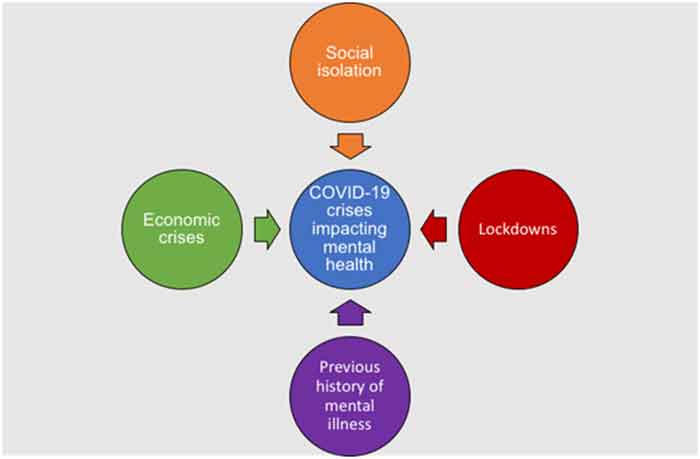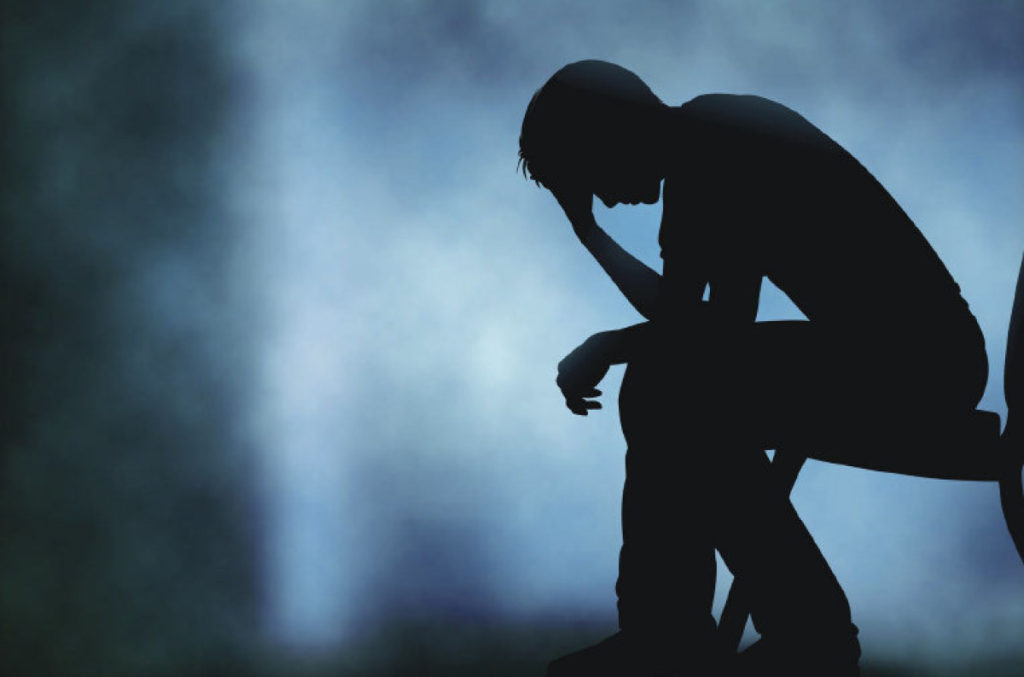Written by Dr. Rabiya Yaseen Bazaz & Professor Mohammad Akram

Mental health is a state of well-being whereby individuals recognize their abilities, try to cope with the normal stresses of life, work productively and fruitfully, and make a contribution to their communities. According to World Health Organisation (WHO),mental, physical and social health are interwoven strands of life and as our understanding of this relationship grows, it becomes ever more apparent that mental health is crucial to the overall well-being of individuals, societies and countries(WHO; Investing in Mental Health, 2003). Mental health problems are among the most important contributors to the global burden of disease and disability. No human group is immune to mental disorders, but the risk is higher among the poor, the unemployed, victims of violence, migrants and refugees, indigenous populations, children and adolescents, person traumatized by war, neglected elderly, and women.
Gender is the powerful structural determinant of mental health that interacts with other determinants of mental health like, family structure, education, occupation, income and social support.Due to various socio-economic and structural factors women experience mental health issues more profoundly thantheir counterpartsand the current pandemic crises have intensified mental health problems of women. The rapid spread of COVID-19 has impacted many aspects of human life and activities.
The WHO declared the novel corona-virus disease (COVID-19) outbreak a global pandemic.In order to prevent the transmission of disease,social distancing and lockdown strategies are adopted bymost of the countries.These measures coupled with issues like absence of effective treatment protocols, vaccine, health care facilities are putting strong negative impact of COVID-19 on mental health, where people are facing increasing levels of stress, depression, anxiety, psychological distress, fear, loneliness etc. Covid-19 has affected women profoundly, even though the global data indicate higher COVID-19 fatality rates among men than women.Recent research has shown a higher prevalence of symptoms for stress, anxiety and depression in the female population during the COVID-19 pandemic[1].In India, the study conducted by Joe, Kumar, Rajpalet. al. (2020) reveals thatfemales have relatively high risk of COVID-19 death (COVID-19 case fatality rate for men is 2·9% and for women it is 3·3%)and mental health problems. The mass efforts to save lives during the wake of COVID-19 have put vulnerable group like women at higher risk of mental health crises and specifically have impacted certain categories of women which are discussed below:
Women who are engaged in domestic and care giving work
The philosophical debates about the role of women have traversed a wide territory of questions and explanation. Women are generally perceived to be the more ‘nurturing’ sex and better suited for domestic and care giving work. Globally women and girls are responsible for 75% of unpaid care and domestic work in homes,[2]where roles like raising children, cooking, cleaning, caring for elderly relatives, shopping, household management, and emotional labour are increasingly performed by women. In Indian context, the survey conducted by the National Statistical Office (2019) reveals that India men spent merely 2.17 per cent of the total time on domestic and care giving work as against 20.61 per cent by women. This entrenched cultural idea about gender roles have put undue pressure on women leading to excess stress and the exacerbation of associated mental health conditions.
Pandemic increases the burden of domestic and care giving work which immediately falls on women, especially on mothers. With the build-up of responsibilities, it becomes harder for women to care for themselves, which in turn affects their mental health and make them prone to depression, anxiety, stress which often results in loss of sleep and appetite. According to the study conducted by Care International (2020), 27% of women reported an increase in challenges associated with mental illness compared to only 10% of men and further, women specifically pointed to skyrocketing unpaid care burdens as a source of this stress. Another aspect of the problem is the fact that increasing domestic and care giving work during pandemic is increasing unemployment among women. According to the U.S. Bureau of Labour Statistics (2021), 2.5 million women left the job market since the beginning of the pandemic compared to 1.8 million men as they take on more responsibilities of home-schooling and everyday parenting.
Women who are victims of violence
According to the UN Women (2020), the incidents of violence against women have increased globally since the lockdowns were implemented. Developed Countries like Brazil, China, U.K, Italy, and Germany experienced surge in the cases of domestic violence against women[3]. India, which is already dwindling with gender-based violence, also showed similar trends. After the announcement of nationwide lockdown in the last week of March 2020, the number of domestic violence complaints received by the National Commission for Women (NCW) had increased significantly.As complaints surged, the NCW raised an urgent alert to announce mental health helplines for those witnessing any form of domestic violence.
The fear and uncertainty associated with the pandemic, along with unemployment and economical stressors, affect individuals and develop maladaptive behaviour which trigger domestic abuse. Women who are already victim of violence are more prone to violence during lockdown then those who do not have a history of domestic violence. During lockdown, psychological violence is rated as the most frequent type of violence followed by economic and physical violence. An abused woman has a higher risk of developing depressive symptoms, suicidal ideation and suicide, low self-esteem, physical trauma, unwanted pregnancy, and low birth weight. A cross-sectional study from India showed the association between violence and self-reported gynaecological complaints, low body mass index, depression, and attempted suicide.[4]
Victims have a limited access to the social and other support structures during the lockdownand in many cases abused women have to stay in quarantine with their aggressors. Home, which is supposed to be a shelter from the pandemic, proved to be the source of distress and insecurity for many women. The exacerbation of gender-based violence may not receive the attention needed in the context of the pandemic. As the repercussions of this can be long term and damaging, not only for its victims but also for the entire country, it is necessary to take active measures in controlling violence against women.
Women who are pregnant
Covid-19 brings new challenges to the pregnant women. Historically, pregnant women have always been considered a high- risk population. Pregnant women represent a particularly vulnerable group, given the dual impact on them and their offspring. Further, during pregnancy, mental disorder like emotional instability, depression and anxiety, and daily stress remain higher among the women[5]. Currently, there is no evidence to suggest that pregnant women are more likely to acquire COVID-19 or that the potential virus infection is more severe for mothers; however, current epidemic has unquantifiable repercussions on the mental and emotional status of pregnant women.
Pregnant women show increased vulnerability to depression and anxiety than the non-pregnant women. It has been observed that COVID-19 has led to higher levels of depression among women during and after pregnancy. Many studies highlighted that in the wake of Covid-19, depression remains higher at prenatal period of pregnancy than at post-natal period. The factors that significantly increase the risk of perinatal mental health problems during a pandemic are social isolation, uncertainty generated by the pandemic, fear of contracting the virus at hospital, lack of maternal care, lack of sufficient and reliable evidence on the risk of transmission of infection of COVID-19 from mother to child, socio-economic crisis, maternal anxiety, relationship conflicts, and decreased contact with healthcare professionals.
India’s public health facilities are burdened with patients being treated for COVID-19 and because of lockdown many private and small clinics remain shut which resulted in poor utilization of maternal healthcare services. Moreover,at some places in India, the percentage of institutional deliveries remains quite higher, e.g. in Srinagar city of Jammu and Kashmir, the percentage of institutional deliveries is 97.4% and only 2.6% home deliveries occurred(Rather et. al. 2017). The pregnant women find it increasingly difficult to seek care and treatment from health providers at places where normally institutional deliveries take place. Lack of access to maternal health care has added to the stress and depression that pregnant women are often prone to.
Women who works as health care worker
Care givers play a crucial role in the health care system but caregiving often proves stressful and burdensome. The empirical study conducted by Schutz and Sherwood (2018) showed that care giving has all features of a chronic stress experience. They argued that providing help that fails to enhance the quality of the patient’s life lead to frustration, resignation and negative health effects for the caregivers. Women are often over represented in caregiving work, such as nursing and early childhood teaching (Croft, Schmader, & Block, 2015). The WHO postulated that health care providers are more prone to develop depression, anxiety and burnout during and after the pandemic peak. Health care worker particularly women have higher rate of mental health problems such as depression, anxiety, stress, insomniac symptoms. It is argued that increased workload, isolation, and discrimination are common in women caregivers and can result in physical exhaustion, fear, emotional disturbance, and sleep disorders. Further, fear of being infected, stigmatization from the family and community, and absence of social support system increases mental health problems among female health care workers.
Dr. Rabiya Yaseen Bazaz is working as a lecturer at the Centre for Women Studies and Research, University of Kashmir. She has worked on areas like sociology of education, employment, and work, inequality and stratification, gender, labour market, social policies, and development. She has published many research articles in Scopus and peer-reviewed journals. She has presented papers at many national and international conferences. Email: [email protected] [email protected],
Prof. Mohammad Akram is Professor of Sociology at Department of Sociology, Aligarh Muslim University, Aligarh, India. He has five published books and several research papers to his credit. He has worked on areas of sociology of health, migration, work, education and social policies. He is engaged in the profession of teaching, research and supervision for more than twenty years. He is an elected member of the Managing Committee of Indian Sociological Society (ISS). Email: [email protected],
[1]https://globalhealth5050.org/covid19/
[2]https://oecd-development-matters.org/2019/ 03/18/why-you-should-care-about-unpaid-care-work
[3]https://www.theguardian.com/society/2020/mar/28/lockdowns-world-rise-domestic-violence
[4]Chowdhary N, Patel V. The effect of spousal violence on women’s health: Findings from the StreeArogyaShodh in Goa, India. J Postgrad Med 2008;54:306-12.
[5] Della Gatta AN, Rizzo R, Pilu G, and Simonazzi G. COVID19 during pregnancy: a systematic review of reported cases. Am J Obstet Gynecol. (2020) 223:36–41.doi: 10.1016/j.ajog.2020.04.013
GET COUNTERCURRENTS DAILY NEWSLETTER STRAIGHT TO YOUR INBOX















































